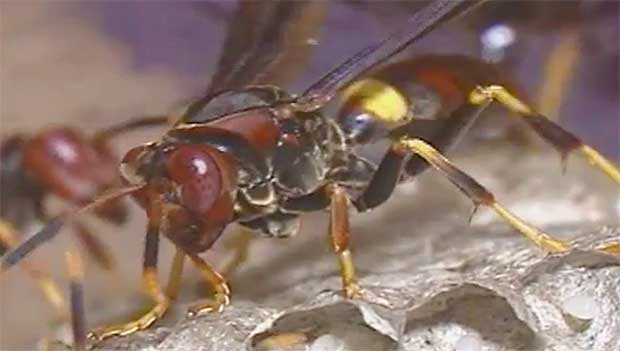Advertisement
Brazilian Wasp’s Venom May Hold Key to Curing Cancer
By Jason Owen
Advertisement - Continue reading below

Could the sting of a wasp cure humans from cancer? Scientists are hopeful after a remarkable discovery.
Researchers at the University of Brazil have been conducting experiments with mice where they inject rodents with the venom from the Polybia paulista, a wasp endemic to southeast Brazil. The wasp’s venom contains a toxin called MP1, which the wasp uses to fight prey or protect itself. Turns out, it can fight much more than that in other animals. The studies on mice showed that MP1 also targets and helps destroy cancer cells.
According to the BBC, “They found MP1 interacts with fat molecules that are abnormally distributed on the surface of cancer cells, creating gaping holes that allow molecules crucial for cell function to leak out.” This means the cancer cell is weakened and additional treatments could help kill the cell.
Scientists in Biophysical Journal said last September, according to the BBC, that healthy cells have their fat molecules on the inside of the membrane, so MP1 would not affect those cells.
Dr. Paul Beales, co-researcher from the University of Leeds, believes new chemotherapeutic drugs can be created based off the MP1 toxin.
Dr. Aine McCarthy, science information officer for Cancer Research UK, warns that the findings are promising, but further testing is needed.
“This early stage research increases our understanding of how the venom of the Brazilian wasp can kill cancer cells in the laboratory,” said McCarthy. “But while these findings are exciting, much more work is needed in the lab and in clinical trials before we will know if drugs based on this research could benefit cancer patients.”
Soon people might start saying, “A spoonful of wasp venom helps the cancer go down.”
We hope this phrase sticks.
Advertisement - Continue reading below
